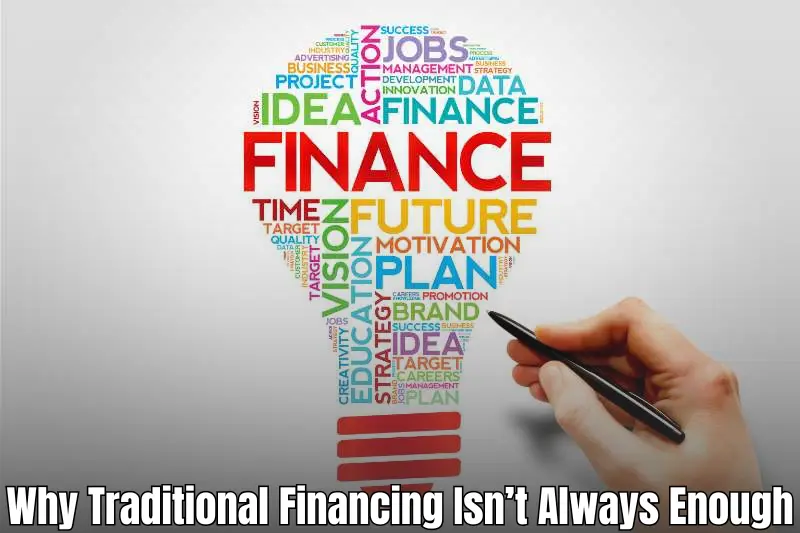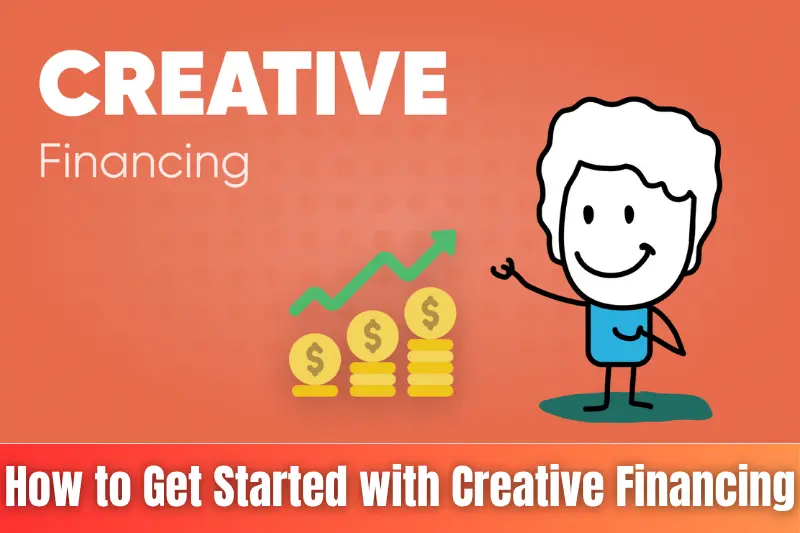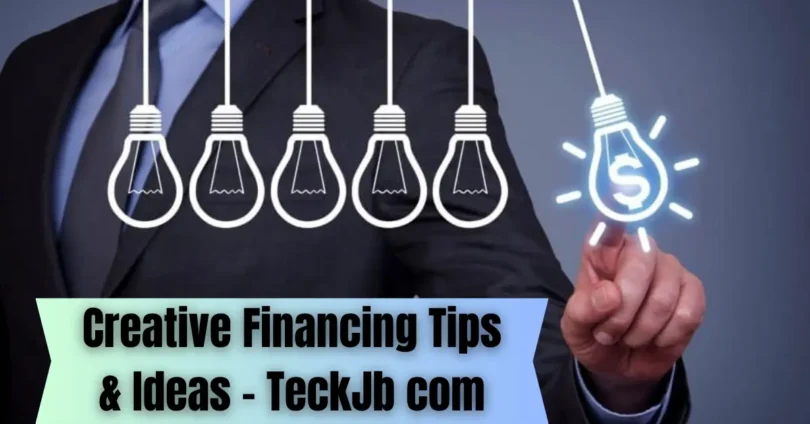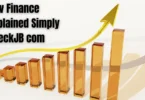Money plays a big role when it comes to buying a home, starting a business, or growing an investment. But what if you don’t have enough cash or can’t get a loan from the bank? That’s where creative financing comes in.
Creative financing means using smart, flexible ways to fund your goals without relying on traditional loans. It helps people think outside the box and still make things happen—even with little money or a low credit score.
Why Traditional Financing Isn’t Always Enough

Traditional loans from banks or lenders work well for many people. But sometimes, they don’t fit everyone’s needs. Here are some reasons why traditional financing can fall short:
Limited Access to Loans
Many people find it hard to get loans because banks have strict rules.
- Banks require a good credit score.
- You must show steady income and job history.
- Self-employed people often struggle to prove their income.
High Down Payments
Banks usually want a big down payment before giving you a loan.
- This upfront money can be hard to save.
- It stops some people from buying a home or starting a business.
Long Approval Process
Getting a traditional loan takes time and paperwork.
- It can take weeks or months to get approved.
- You need many documents like tax returns and bank statements.
- Sometimes, deals fall through because of slow approvals.
Limited Flexibility
Banks follow strict rules that may not fit your situation.
- You can’t change loan terms easily.
- Some people have unique financial needs that banks don’t consider.
- Banks may reject loans for unusual income sources.
You may also like it:
Personal Finance Guide: Tips for Financial Success
Smart Home Trends: Top Innovations for 2025
Easy Budgeting Tips: Manage Your Money Smartly
Popular Types of Creative Financing
Creative financing offers many options that help you get money or buy something without using a regular bank loan. Here are some popular ways people use creative financing:
Seller Financing
Seller financing means the seller lets you pay them directly instead of going to a bank.
- You make monthly payments to the seller.
- It often has lower credit score requirements.
- The process is faster and more flexible.
- It can help buyers who can’t get a traditional loan.
Lease Options
Lease options let you rent a property with the chance to buy it later.
- Part of your rent can count toward the purchase price.
- You get time to save money or improve your credit.
- It gives you the right, but not the obligation, to buy later.
- Great for people who need time before fully committing.
Hard Money Loans
Hard money loans come from private lenders, not banks.
- They are fast to get, sometimes in days.
- Usually have higher interest rates than bank loans.
- Good for short-term projects or fixes.
- Lenders focus on the value of the property, not your credit.
Subject-To Deals
In a subject-to deal, you take over the seller’s existing mortgage payments.
- The loan stays in the seller’s name, but you control the property.
- It can help buyers avoid qualifying for a new loan.
- Works well if the current loan has a low interest rate.
- Requires careful legal steps to protect both parties.
Peer-to-Peer Lending
Peer-to-peer lending lets you borrow money from individuals online.
- No banks involved; you deal directly with people.
- It can be easier to qualify than a bank loan.
- Interest rates may be lower or higher depending on the lender.
- Useful for small loans or business startups.
Partnerships
Partnerships let you team up with others to fund a project or purchase.
- You share the costs, risks, and profits.
- Good if you lack full funding or experience.
- Can be with friends, family, or investors.
- Clear agreements help avoid problems later.
When to Use Creative Financing
Creative financing is helpful in many situations where traditional loans don’t work well. Here are some times when you might want to consider it:
When You Have Poor Credit or No Credit History
Traditional banks often say no if your credit is low or you don’t have a credit history.
- Creative financing can work with less strict credit checks.
- Sellers or private lenders may trust your plan more than a credit score.
- This helps you get started even if your credit isn’t perfect.
When You Need Fast Funding
Sometimes, deals need to happen quickly, and banks take too long.
- Creative financing options like hard money loans can close in days.
- Fast money helps you act quickly on good investment opportunities.
- It’s useful for real estate deals or business emergencies.
When You Lack a Large Down Payment
Saving a big down payment can be hard, especially for first-time buyers.
- Creative financing methods often require little or no upfront money.
- Lease options or seller financing can reduce initial costs.
- This lets you buy or invest without waiting years to save.
When Traditional Loans Don’t Fit Your Needs
Some financial situations don’t match bank rules.
- Self-employed people or those with irregular income may struggle to qualify.
- Creative financing can be more flexible with payment terms.
- You can negotiate terms directly with sellers or private lenders.
How to Get Started with Creative Financing

Starting with creative financing is easier than you might think. Here are some steps to help you begin your journey.
Learn and Research
Understanding your options is the first step.
- Read books, blogs, and watch videos about creative financing.
- Join online forums or groups where people share experiences.
- Learn the pros and cons of different methods.
- Stay updated with new trends and ideas.
Network with Professionals
Building connections can open many doors.
- Talk to real estate agents, lenders, and investors.
- Attend local meetups or business events.
- Ask questions and learn from experts.
- Find mentors who can guide you.
Start Small
Begin with a manageable project to gain experience.
- Try a small investment or a simple deal.
- Use lease options or partnerships to reduce risk.
- Learn from your mistakes and successes.
- Build confidence before bigger deals.
Get Legal and Financial Advice
Protect yourself by consulting professionals.
- Hire a lawyer to review contracts and agreements.
- Talk to an accountant about tax implications.
- Understand local laws related to financing.
- Avoid costly mistakes by being prepared.
Risks and Things to Watch Out For
Creative financing can open many doors, but it also comes with risks. Knowing these helps you stay safe and make smart choices.
Legal Issues
Sometimes, creative financing deals can get complicated legally.
- Contracts may have confusing or unfair terms.
- Missing important details can lead to lawsuits.
- Always use a lawyer to review agreements.
- Understand local laws before signing anything.
Higher Costs
Some creative financing methods can be more expensive than regular loans.
- Interest rates may be higher, especially with private lenders.
- You might face extra fees or balloon payments.
- These costs can add up and affect your budget.
- Compare all costs before choosing a method.
Risk of Scams
Not all creative financing offers are honest or safe.
- Some deals sound too good to be true.
- Fraudsters may try to trick you out of money or property.
- Always check the reputation of sellers or lenders.
- Avoid quick decisions without research.
Unclear Ownership or Payment Terms
Some deals may cause confusion about who owns the property or owes money.
- Subject-to deals need careful paperwork to protect both sides.
- Missed payments could hurt your credit or cause foreclosure.
- Make sure all terms are clear and in writing.
- Communicate openly with all parties involved.
Real-Life Success Stories
Creative financing has helped many people achieve their dreams. Here are some real examples to inspire you.
Starting a Business with Little Money
Many entrepreneurs use creative financing to begin without big loans.
- A small bakery owner got a loan from friends instead of a bank.
- She paid them back slowly as her business grew.
- This helped her avoid high bank interest and strict rules.
- Creative financing gave her the chance to follow her passion.
Buying a Home Without a Big Down Payment
Some buyers use creative methods to buy homes sooner.
- One couple used a lease option to rent and save for their down payment.
- After two years, they bought the home with their saved money.
- This gave them time to fix their credit and get ready.
- Creative financing made homeownership possible when banks said no.
Investing in Real Estate Quickly
Real estate investors often need fast money to close deals.
- An investor used a hard money loan to buy a fixer-upper.
- He repaired the home and sold it for a profit in six months.
- The quick loan helped him act before others could.
- Creative financing sped up his investment success.
Partnering to Share Costs and Risks
Partnerships can help people pool money and skills.
- Two friends joined forces to buy a rental property.
- They shared the down payment, repairs, and profits equally.
- This lowered their risk and made the investment easier.
- Creative financing through partnerships made their dream real.
Conclusion
Creative financing gives you many smart ways to reach your goals without relying on banks. It can help you start a business, buy a home, or invest even if money is tight.
Remember to learn your options, ask for help, and be careful with each deal. With the right steps, creative financing can open new doors for you.
Common FAQs About Creative Financing
What is creative financing?
Creative financing means using different, flexible ways to pay for something without using a regular bank loan.
Who can use creative financing?
Anyone can use creative financing, especially people who don’t qualify for traditional loans or want faster, easier options.
Is creative financing risky?
Like any money deal, creative financing has risks. But if you learn and get good advice, you can reduce those risks.
Can I buy a house with creative financing?
Yes! Many people buy homes using methods like seller financing, lease options, or taking over existing loans.
Do I need a good credit score for creative financing?
Not always. Some creative financing options don’t require a perfect credit score, making it easier for people with low or no credit.
Should I get a lawyer before using creative financing?
Yes, it’s very important. A lawyer helps you understand contracts and protects you from problems.
How do I find creative financing opportunities?
Start by learning online, networking with experts, and joining local groups where people share ideas and deals.
You may also like it:
Saving Money Tips for Students: Master Your Finances Now!
Startup Marketing Strategies: Boost Your Business Fast







